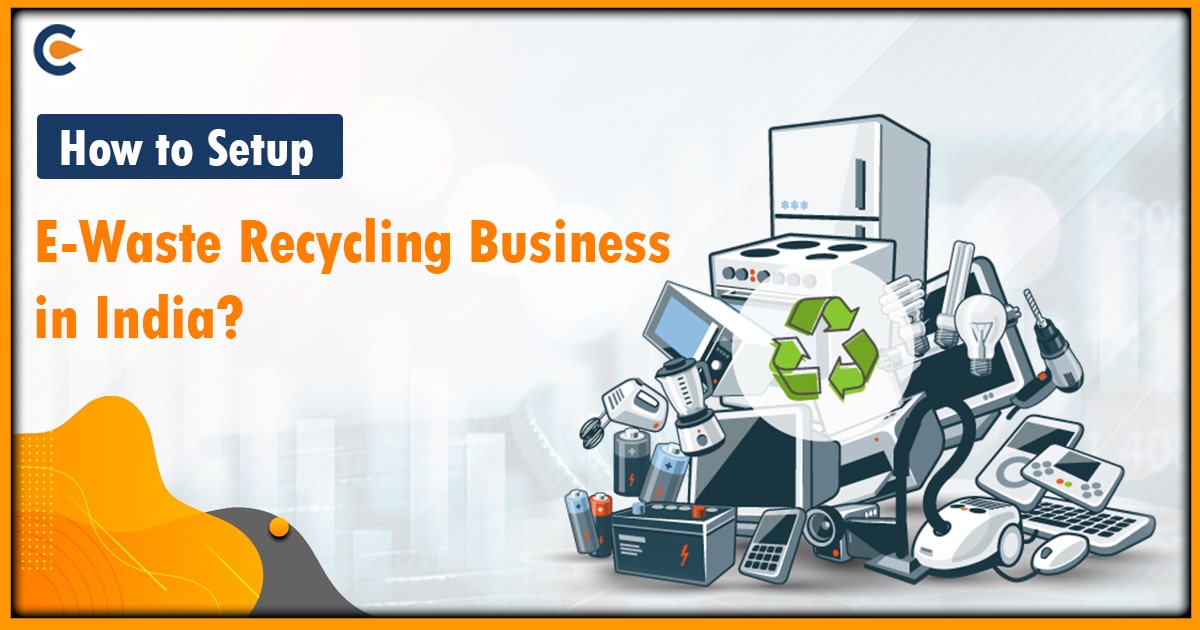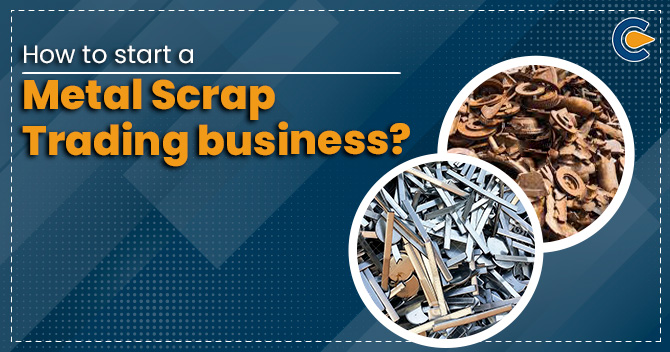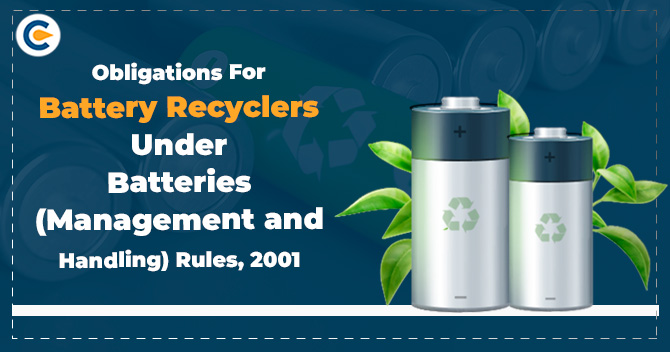Setting up an E-waste recycling business and wanting to know the legal provisions and other aspects let’s go through articles which have a detailed description. An e-waste recycling plant Business in India is a specialized facility designed for recycling and environmentally responsible electronic waste (e-waste) management. E-waste refers to electronic devices that are discarded and components, including old computers, mobile phones, televisions, refrigerators, and other electronic equipment. Hazardous materials like lead, mercury, and cadmium are there, which can have environmental and health risks if not properly managed.
Compliance with legal regulations, investment in appropriate technology and equipment, and a commitment to environmental responsibility are required for setting up and operating an e-waste recycling business in India. This plant helps reduce the environmental impact due to electronic waste and conserves valuable resources.
Sales of these electronic devices are rising steadily as a result of rising disposable income and purchasing power. Customers are now urged to replace their outdated products with new ones that have new offerings and updated features as a result of new product releases. In the upcoming years, the continued growth in sale of electronic equipment would make a favourable business environment for the recycling of e-waste.
E-waste components
- A printed circuit board
- Cathode ray tubes
- Chips and other gold-plated components
- Computer wires
- Plastics from printers, monitors, keyboards, etc.
Examples of E-waste products
- Lithium-ion batteries
- Nickel-cadmium batteries
- Connector plating is mainly used in computer equipment.
- PCB tracks, component leads, copper wire.
- All electronic devices that use a few watts of power
- Transistorized electronics
- Glass, transistors, ICs, printed circuit boards
- Plating for steel parts
Key features and functions of an e-waste recycling plant business in India
- Collection and Segregation: The plant collects e-waste from various sources, including consumers, businesses, and government agencies. Upon arrival, the e-waste is segregated into different categories based on type and material composition.
- Dismantling: E-waste items are disassembled to separate reusable components and hazardous materials. Valuable components like circuit boards, hard drives, and memory modules are often extracted for resale or reuse.
- Safe Handling: Hazardous materials such as batteries and cathode ray tubes (CRTs) are handled with care to prevent environmental contamination. For safe disposal, they may be sent to facilities which were specialized in nature.
- Recycling: Recoverable materials like metals (e.g., copper, aluminium) and plastics are sent for recycling. New electronic products can be manufactured from these materials and can be reused.
- Environmental Compliance: E-waste recycling plants must adhere to strict environmental regulations to ensure that recycling processes do not harm the environment or human health.
- Safety Measures: Occupational safety measures are in place to protect recycling workforce from exposure to hazardous substances during the recycling process.
- Data Security: For devices like computers and smartphones, data security measures are taken to ensure that sensitive information is properly erased or destroyed.
- Resource Recovery: Besides metals and plastics, other valuable resources like rare earth metals and precious metals can be recovered from e-waste through specialized processes.
- Efficiency and Innovation: Many recycling plants are continuously innovating to improve efficiency and develop more environmentally friendly recycling methods.
- Public Awareness: Some e-waste recycling plants engage in public awareness campaigns to educate consumers about the importance of responsible e-waste disposal.
Types of E-waste recycling business
Many types of E-waste recycling businesses can be started depending on one’s interest, knowledge, and resources.
Here are a few examples of typical e-waste recycling companies:
- Business of Selection and Transportation: E-waste is gathered and transported from various sources, including homes, businesses, and industries, to e-waste recycling facilities.
- Refurbishing and Dismantling Business: Electronic devices are disassembled into their parts in this type of e-waste recycling business before being repaired for reuse.
- The Metal Recovery Industry: In this type, the focus is on recovering metals like gold, silver, copper, and aluminium from E-waste.
- The Plastic Recovery Industry: This type of e-waste recycling business focuses on recovering plastic materials from electronic waste using ways like mechanical shredding, pyrolysis, and chemical treatment.
- The Battery Recycling Industry: The recycling of batteries from electronic devices like laptops, smartphones, and tablets is a speciality of this type of e-waste recycling company. Common examples of valuable metals that are extracted during the recycling process are lithium, cobalt, and nickel.
- Consulting on e-waste management: Consulting services are provided by this type of e-waste recycling company to Businesses, governments, and individuals are considered the best ways to manage electronic waste.
- Business: E-Waste Drop-Off Center: To facilitate the collection of electronic waste from the general public, this type of e-waste recycling business involves establishing drop-off centres for electronic waste in convenient locations.
- E-Waste Business of Reselling: Buying of electronics from people and after that refurbishment is done and later on it is resold on a profit.
- The E-Waste Art Industry: In this kind of e-waste recycling business, sculptures, jewellery, and other works of art are made from electronic waste.
Importance of Recycling E-Waste
Electronic waste consists of a significant amount of precious metals. We can use those metals after the waste has been recovered. Effective waste management is done with the help of recycling E-waste. Hazardous contaminants like arsenic, cadmium, and chromium may be present in old electronic equipment. Additionally, the environment is also damaged. As a result, effective e-waste management is imperative. Over 70% of all environmental emissions now come from e-waste. Reducing emissions disposal of E-waste is one of the decisive ways on a global level.
Cost of setting up an E-waste recycling business
While setting up an E-waste recycling business, many factors are kept in mind, such as
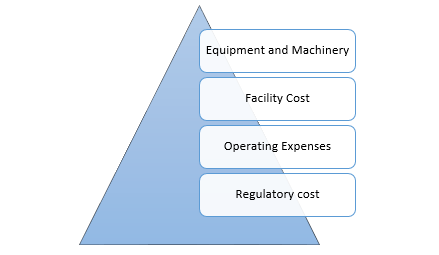

Legal Provisions vis-à-vis e-waste recycling business in India
The E-waste recycling business in India is regulated primarily by the E-Waste (Management and Handling) Rules, 2022. The rules were first introduced in 2011 and revised in 2016. For management and recycling, these rules help provide a legal structure for e-waste in the country
- Extended Producer Responsibility (EPR): Producers of electrical and electronic equipment (EEE) are legally responsible for the environmentally sound management of their products at the end of their life cycle. They must establish collection systems, take back e-waste, and ensure its environmentally safe recycling.
- Authorization: E-waste recyclers, dismantlers, and refurbishers must obtain authorization from the appropriate State Pollution Control Board[1] or Pollution Control Committee to operate legally.
- Collection and Storage: Producers, bulk consumers, and authorized e-waste recyclers must ensure the proper collection, storage, and transportation of e-waste to authorized recycling facilities.
- Record Keeping: All stakeholders, including producers, consumers, and recyclers, are required to maintain records of e-waste handling and management activities.
- Environmentally Sound Recycling: Recycling facilities must adhere to environmentally sound practices for e-waste recycling to minimize the impact on human health and the environment.
- Occupational Safety: Recycling and dismantling units must ensure the safety of workers involved in e-waste handling and processing.
- Consumer Awareness: Producers must raise public awareness about e-waste and promote the proper disposal and recycling of electronic products.
- Penalties and Enforcement: Violations of these rules can result in penalties and legal actions against the responsible parties.
- Waste Generators: Individuals and organizations are legally obligated to hand over their end-of-life electronic products to authorized collection centres or registered e-waste recyclers.
- Import of Used EEE: The rules regulate the import of used electrical and electronic equipment (UEEE) to prevent the entry of hazardous e-waste into the country.
- Environmental Standards: The rules set environmental standards and guidelines for the management and handling of e-waste.
- Annual Reporting: An annual report must be submitted by producers, importers, and recyclers on their e-waste management activities to the appropriate regulatory authorities.
Reasons for the increase in E-waste in India
In the past few years, massive growth has been visible across the globe, with a growing acceptance and existence of electronics in our lives, due to which growth is visible. The higher spending on product innovation and shorter product life cycles result from this demand for electronics.
Although technology has greatly simplified our lives, the products we use are not built to last, either because we prefer the newest, flashiest gadgets or because the manufacturers intentionally design them to become obsolete quickly. When a product has served its purpose, it is typically disposed of in the trash or other waste streams, or it is given to unofficial processors of electronic waste. In the end, over the past few years, a tremendous amount of electronic waste was produced.
Statistical data: Increase in the amount of E-waste produced in India
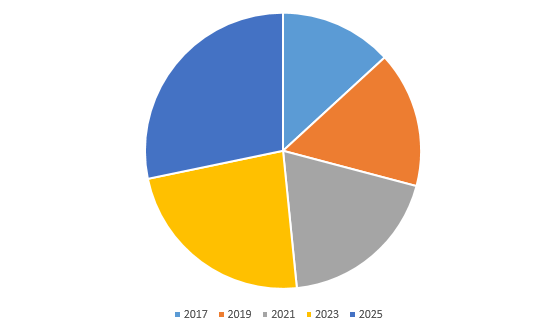

Conclusion
Anyone involved in e-waste recycling in India must be fully aware of these legal provisions, obtain necessary authorizations, and comply with the E-Waste Rules to ensure responsible and environmentally sound e-waste management. The E-waste recycling business can be a profitable venture extending various benefits like environmental sustainability and resource recovery. The E-waste business can be rewarding, but careful planning must be done.
FAQs
Setting up and operating an e-waste recycling plant business in India requires compliance with legal regulations, investment in appropriate technology and equipment, and a commitment to environmental responsibility. Such plants play a crucial role in reducing the environmental impact of electronic waste and conserving valuable resources.
Electrical and electronic equipment thrown as garbage by the consumer or bulk consumer and rejected from production, refurbishing, and repair processes are referred to as ‘e-waste.’ 3. What are some examples of E-waste? • A printed circuit board • Cathode ray tubes • Chips and other gold-plated components • Computer wires • Plastics from printers, monitors, keyboards, etc.
With a growing acceptance and existence of electronics in our lives due to which growth is visible. The higher spending on product innovation and shorter product life cycles are both results of this rise in demand for electronics.
By disassembling or auctioning the electronic components and selling them to various industries like plastics, metals, and aluminium, it can also make money from its e-waste.
The business includes all e-waste-related processes, including gathering and recycling e-waste from various locations to make it useful in specific situations. Due to India’s high rate of e-waste generation, this industry is among the most lucrative.
E-waste can also contain precious metals such as gold, silver, and platinum. The recycling process starts by separating these valuable metals from other parts of the e-waste. The metals are then sold to investors, who melt them down into bars of metal that can be used again.
On average, e-waste can be valued at approximately Rs. 50/- kg, which implies that the e-waste industry in India is worth Rs. 16 billion.
Read Our Article: An Overview Of The E-Waste Recycling Business



